Results
-
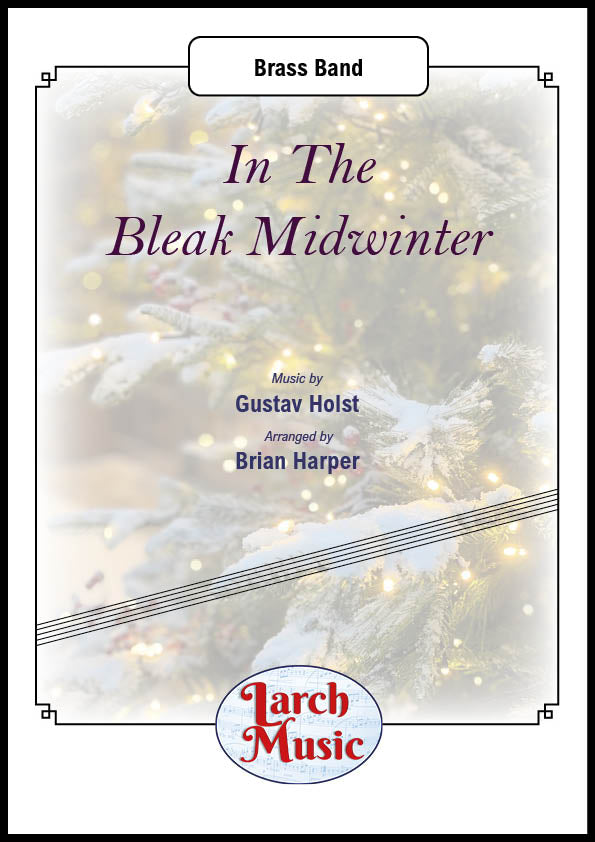 £30.00
£30.00In The Bleak Midwinter (Gustav Holst arr. Brian Harper) - Brass Band Full Score & Parts - LM578 - Gustav Holst - Brian Harper
COMPOSER: Gustav HolstARRANGER: Brian HarperA great addition to the brass band repertoire from Brian HarperA calming selection for your next Christmas concert
In Stock: Estimated dispatch 3-5 working days
-
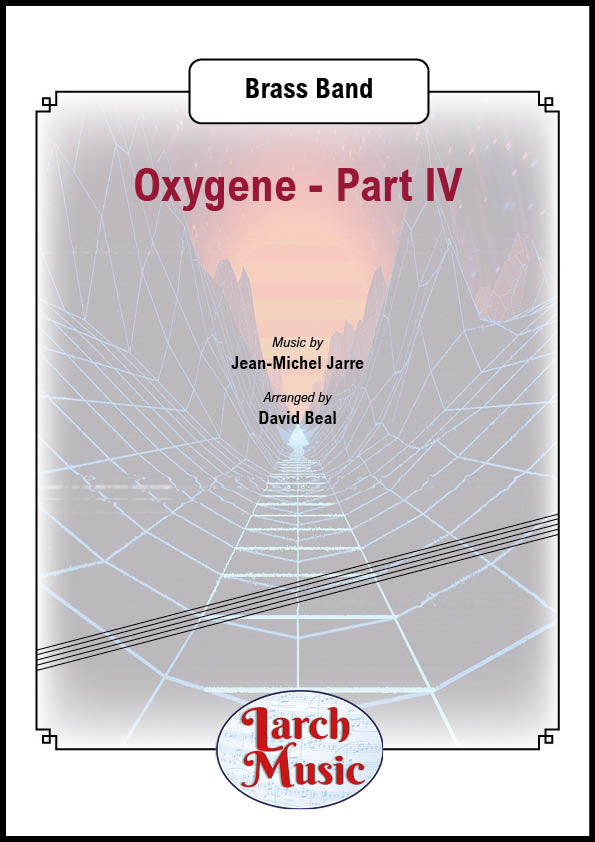 £21.50
£21.50Oxygene Part 4 (Jean-Michel Jarre) - Brass Band Full Score and Parts- LM729
COMPOSER: Jean-Michel JarreARRANGER: David BealUK SALES ONLYProbably the most popular track from french composer Jean-Michel Jarre arranged here for brass band.This is the fourth part from the album.Oxygene (English: Oxygen) is the third studio album by French electronic musician and composer Jean-Michel Jarre, and his first album not intended for use as a soundtrack.Oxygene consists of six tracks, numbered simply "Oxygene Part I" to "Part VI".It was first released in France in December 1976 with an international release following in the middle of 1977.The album reached number one on the French charts, number two on the UK charts and number 78 in the US charts.UK SALES ONLY
In Stock: Estimated dispatch 3-5 working days
-
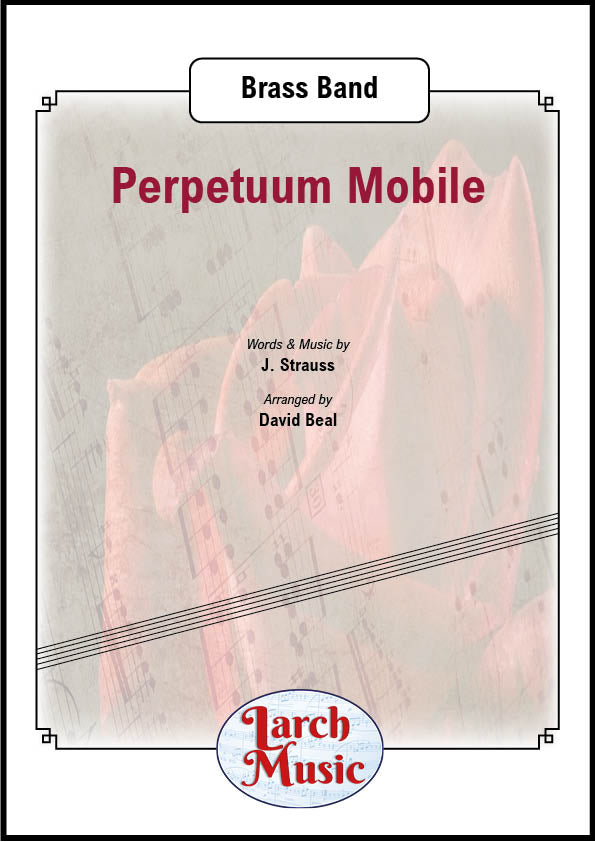 £25.00
£25.00Perpetuum Mobile (Johann Strauss II arr. by David Beal) - Brass Band Full Score and Parts - LM043
COMPOSER: Johann Strauss IIARRANGER: David BealShow off your band in this exciting technical wizardry concert item.Would make an ideal concert opener for the second half.An excellent concert item, loved by all
In Stock: Estimated dispatch 3-5 working days
-
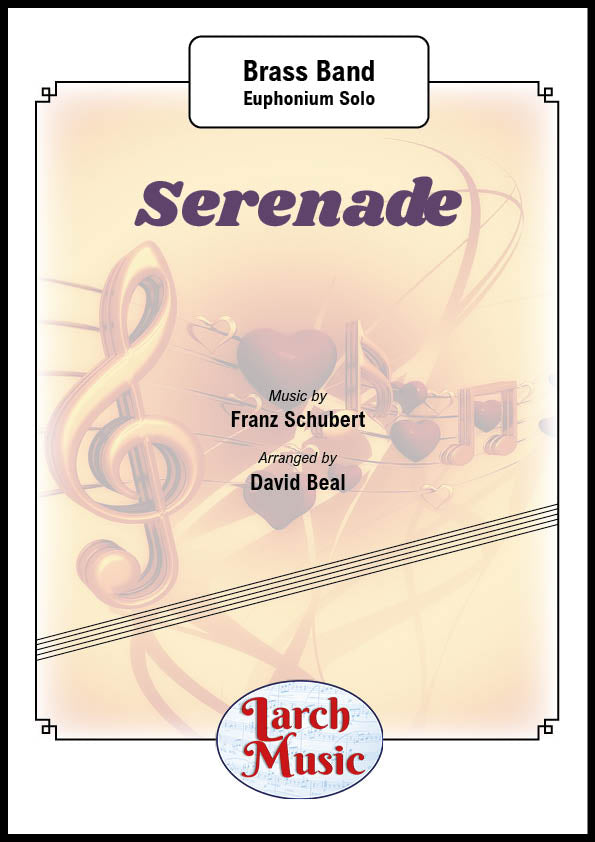 £25.00
£25.00Serenade (Schubert arr. by David Beal) - Euphonium & Brass Band Full Score and Parts - LM008
COMPOSER: SchubertARRANGER: David BealA Fantastic arrangement of this classic Schubert tune.A light arrangement of this tune. Euphonium Solo with delicate backing from the band. A light drum backing compliments the piece.ISMN - 9790570000081
In Stock: Estimated dispatch 3-5 working days
-
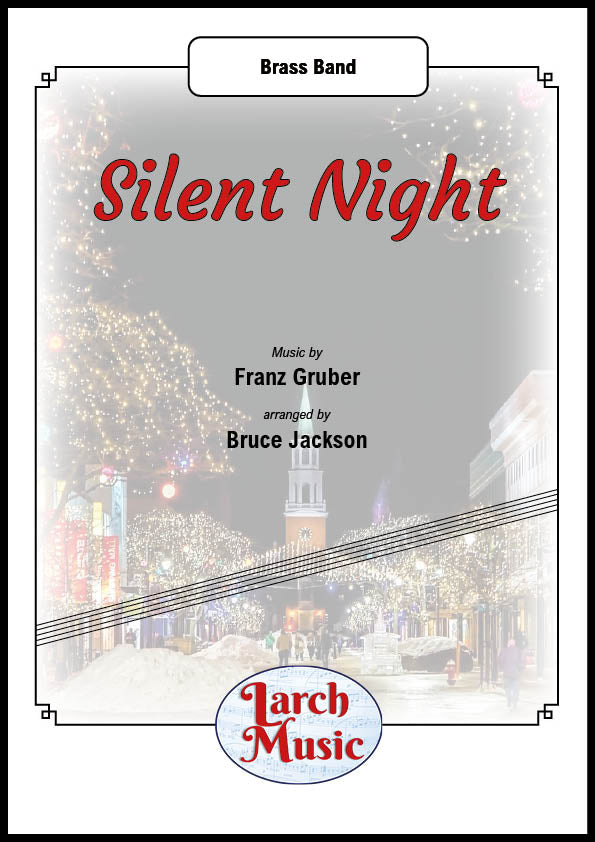 £25.00
£25.00Silent Night (Bruce Jackson) - Brass Band Full Score and Parts - LM441
COMPOSER: Franz Xaver GruberARRANGER: Bruce JacksonSomething new for your band this Christmas from the pen of Bruce JacksonA lightly scored and different arrangement of this classic Christmas tune.LM441 - ISMN : 9790570004416
In Stock: Estimated dispatch 3-5 working days
-
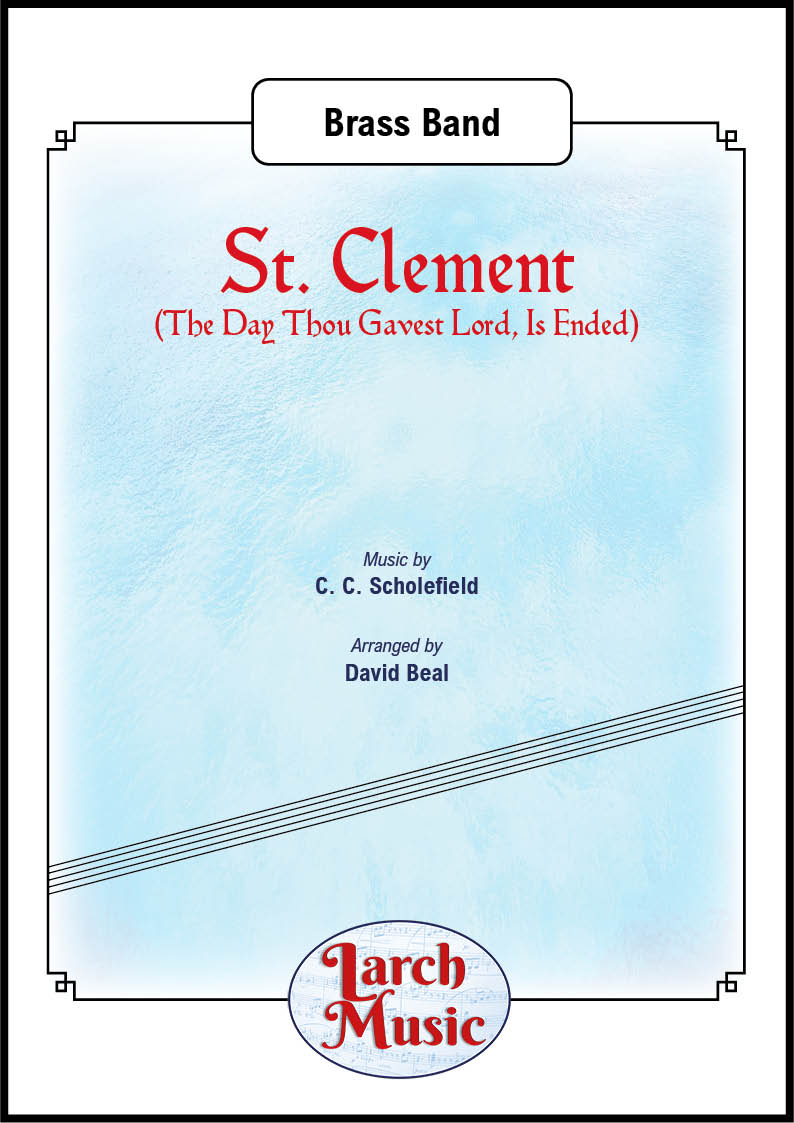 £25.00
£25.00St. Clement (The Day Thou Gavest Lord, Is Ended) (CC Scholefield arr. by David Beal) - Brass Band Full Score & Parts - LM009
St. Clement (The Day Thou Gavest Lord, Is Ended)COMPOSER: C.C. ScholefieldARRANGER: David BealThe popular hymn tune for brass bandThree verses with Soprano Cornet obligato on last verseISMN - 9790570000098
In Stock: Estimated dispatch 3-5 working days
-
 £12.00
£12.00Of Men and Mountains (Brass Band - Study Score) - Gregson, Edward
Of Men and Mountains was commissioned by the Netherlands Brass Band Championships for their 10th Anniversary Contest, held in Drachten in December 1990.The title of the work and its genesis came about as a result of a train journey the composer took in July 1989 across Canada from Toronto to Vancouver. The awe-inspiring journey through the Rocky Mountains, with its high peaks and shafts of sunlight breaking through the clouds, with its canyons and ferocious rapids, made the composer understand a little more about the majesty of nature and the fragility of humanity. The eternal struggle between man and nature was personified in the building of this incredible railway, hence the title (after Blake).The work is dedicated to the memory of Eric Ball, who died shortly before the writing of the work was commenced.Of Men and Mountains is in one continuous movement and lasts about 17 mins. Its form is difficult to describe because of its motivic and accumulative nature, but it is essentially a symphonic tone poem in search of a theme, which eventually comes in its final and complete state in the majestic ending after an ever-increasing paced scherzo.Duration: 17.00
Estimated dispatch 7-14 working days
-
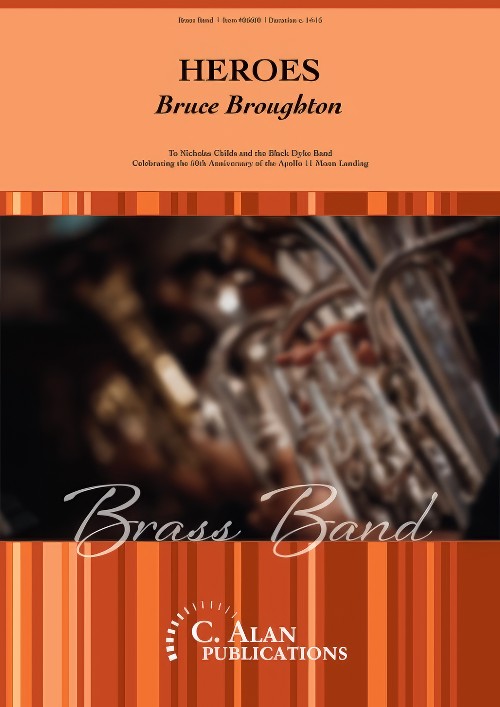 £12.00
£12.00Heroes (Brass Band - Study Score) - Broughton, Bruce
Celebrating the 50th Anniversary of the Apollo 11 Moon Landing.Dedicated to Nicholas Childs and the Black Dyke Band, Heroes pays tribute to the 50th anniversary of the Apollo 11 moon landing and the incredible achievements of astronauts Neil Armstrong, Buzz Aldrin and Michael Collins.The piece is cast in three continuous sections:Ignition, which launches the work, propels us into orbit with dynamic rhythmic writing before transitioning into the second section...Tranquility, provides the soloists an opportunity to revel in a contrasting sound world, reflecting the remarkable quiet and stillness of The Sea of Tranquility.Return, the find section is a technical tour de force, developing material from the earlier sections before a reprise of the Tranquility theme brings the work to a resounding conclusion.
Estimated dispatch 7-14 working days
-
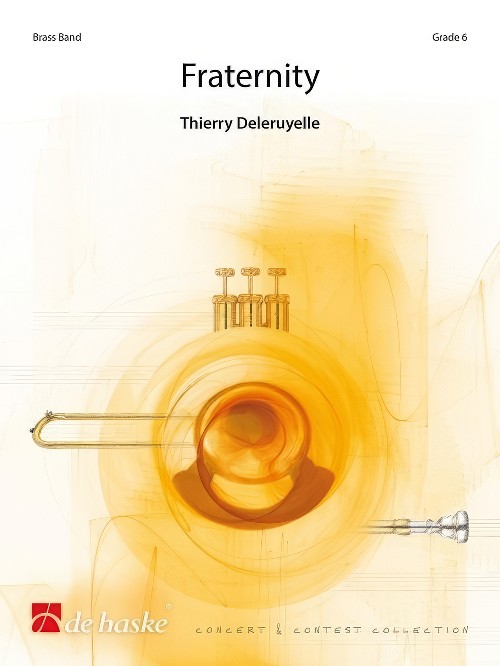 £13.99
£13.99Fraternity (Brass Band - Study Score) - Deleruyelle, Thierry
This piece by Thierry Deleruyelle is based on one of the most significant events in the history of coal mining; the catastrophe at Courrieres, Northern France. It took place on 10th March 1906 and is considered the most momentous mining accident in Europe and the second most significant in the world. This work is both emotional and spectacular and tells in 7 contrasting sections the catastrophe that occurred. Fraternity was the test piece in the Champion category at the European Brass Band Competition 2016 in Lille, thus commemorating 110 years since the disaster at Courrieres.Duration: 15.40
Estimated dispatch 7-14 working days
-
 £19.95
£19.95Red Priest (Brass Band - Study Score) - Wilby, Philip
Concerto After VivaldiDuring his lifetime, Antonio Vivaldi was known as 'il Prete Rosso', the Red Priest, thanks to his youthful ordination and his flaming red hair. The son of a violinist at San Marco in Venice, Vivaldi's musical pedigree was impeccable and an excellent start to his career was coupled with astounding energy and productivity. His vast output of concerti grossi, using soloists in groups, inspired this composition and performers may choose appropriate stage positions for the various groupings of cornets and trombones, spaced around the performance area. The score quotes freely from some of Vivaldi's most popular compositions, including 'Winter' from The Four Seasons, the motet Nisi Dominus, the famous Gloria and the fugue from the Concerto grosso in D minor found in L'Estro Armonico.However, it is the musical spirit of Vivaldi, a close contemporary of both Handel and Casanova, that inspired this music, which should be played with a mixture of accuracy and abandoned virtuosity. The musical images in this piece have clear associations in the composer's mind with individual Venetian locations, ranging from bustling street scenes to vaulted interiors, and describing the famous journey down the Grand Canal, past the Doge's Palace, to the Ospedale della Pieta where Vivaldi worked for so many years.Duration: 14.00
Estimated dispatch 7-14 working days






